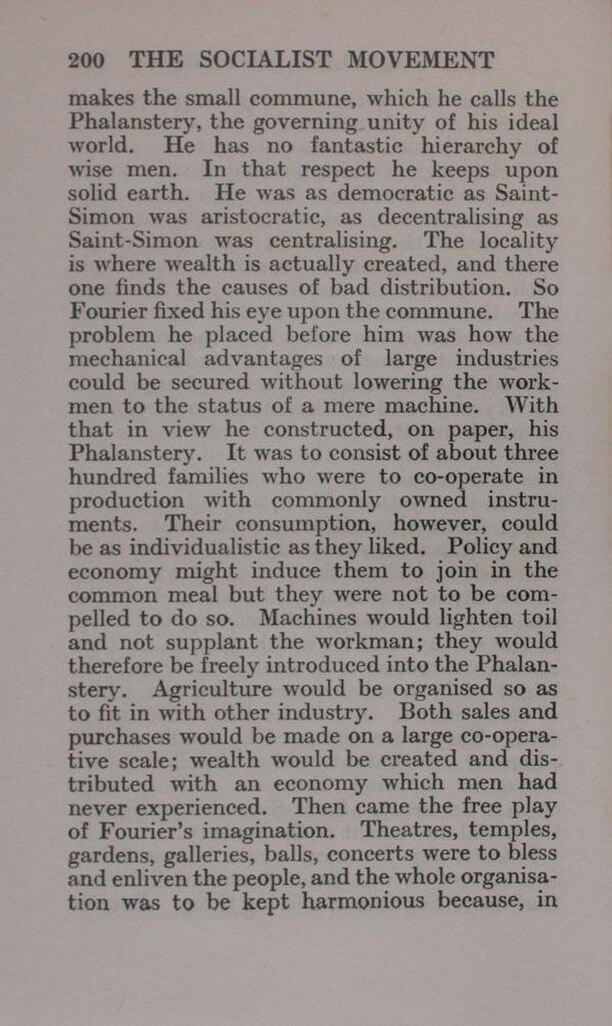makes the small commune, which he calls the Phalanstery, the governing unity of his ideal world. He has no fantastic hierarchy of wise men. In that respect he keeps upon solid earth. He was as democratic as Saint-Simon was aristocratic, as decentralising as Saint-Simon was centralising. The locality is where wealth is actually created, and there one finds the causes of bad distribution. So Fourier fixed his eye upon the commune. The problem he placed before him was how the mechanical advantages of large industries could be secured without lowering the workmen to the status of a mere machine. With that in view he constructed, on paper, his Phalanstery. It was to consist of about three hundred families who were to co-operate in production with commonly owned instruments. Their consumption, however, could be as individualistic as they liked. Policy and economy might induce them to join in the common meal but they were not to be compelled to do so. Machines would lighten toil and not supplant the workman; they would therefore be freely introduced into the Phalanstery. Agriculture would be organised so as to fit in with other industry. Both sales and purchases would be made on a large co-operative scale; wealth would be created and distributed with an economy which men had never experienced. Then came the free play of Fourier's imagination. Theatres, temples, gardens, galleries, balls, concerts were to bless and enliven the people, and the whole organisation was to be kept harmonious because, in
Page:James Ramsay MacDonald - The Socialist Movement.pdf/204
200
THE SOCIALIST MOVEMENT
